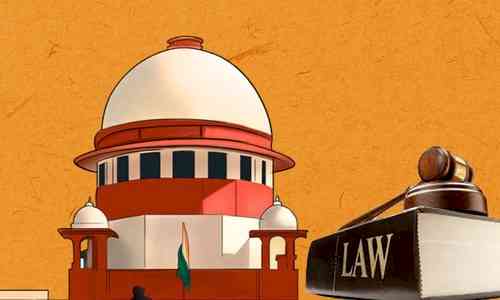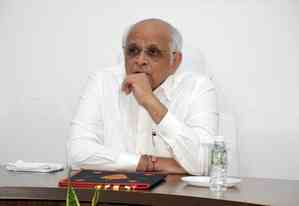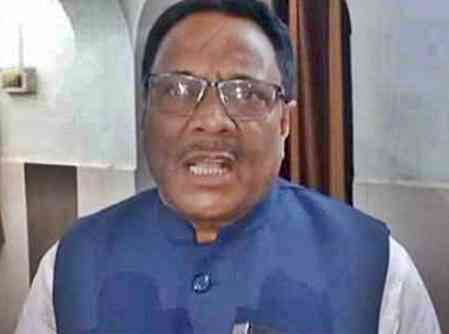Centre objects priority to Money Bill hearing; 'leave it to us', says CJI
The Centre on Thursday took objection to the seven-judge bench of the Supreme Court giving priority to the Rojer Mathew vs. South Indian Bank Ltd and Others case.

Oct 12, New Delhi (IANS) The Centre on Thursday took objection to the seven-judge bench of the Supreme Court giving priority to the Rojer Mathew vs. South Indian Bank Ltd and Others case.
Appearing for the Centre, the Solicitor General (SG) Tushar Mehta told the seven-judge bench that matters should not be prioritised based on "political exigencies".
The constitutional bench comprising Chief Justice of India, D.Y. Chandrachud, and Justices Sanjay Kishan Kaul, Sanjiv Khanna, B.R. Gavai, Surya Kant, J.B. Pardiwala and Manoj Misra were passing directions for the pre-hearing steps in various matters listed before seven-judge bench and the nine-judge bench.
Explaining that the idea is to get these matters ready for hearing, the CJI said that the bench will be passing a common order for all the listed matters.
The above mentioned case, which deals with the question of Money Bill, is listed before the seven-judge bench.
The CJI said the bench will give the Money Bill matter some priority.
On this, Mehta said, "We would request that your lordships go by seniority. My lords can't decide priority based on political exigencies."
The Rojer Mathew case is listed as the fifth case chronologically out of the six cases before the seven-judge bench, he pointed out.
To this, the CJI responded, "Leave it to us, we will decide."
According to the Constitution, the Money Bill is a Bill which the Rajya Sabha has no power to amend or reject. It can make suggestions, but the Lok Sabha's say is final.
Article 110 of the Constitution describes a Money Bill as a Bill that has provisions regarding imposition, abolition, remission, alteration or regulation of any tax; regulating government borrowings and financial obligations, custody, and flow of funds from the Consolidated Fund of India (CFI).
The matter of the Money Bill courted controversy after the Centre passed the Aadhaar Act in 2016.
The Centre had introduced the Aadhaar Bill in the Parliament as a Money Bill. It was alleged that since the government lacked majority in the Rajya Sabha, it introduced the Bill as a Money Bill to circumvent the Upper House. Similar allegations were levelled for amendments made to the Prevention of Money Laundering Act (PMLA).
In 2019, while looking into the validity of the Finance Act, 2017 as a Money Bill, a five-judge bench of the Supreme Court went through the Aadhaar judgement and observed that it did not discuss the significance of the word "only" in Article 110(1).
The five-judge bench then referred the batch of matters to a larger constitutional bench.


 IANS
IANS 








